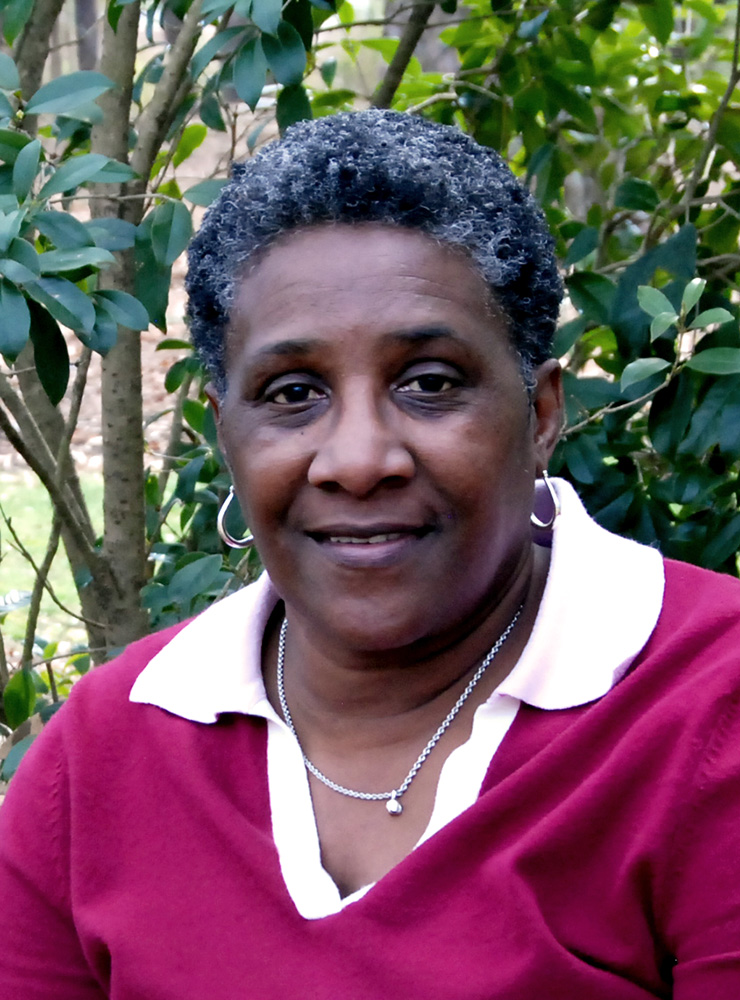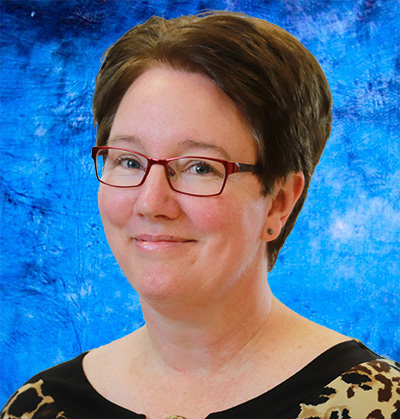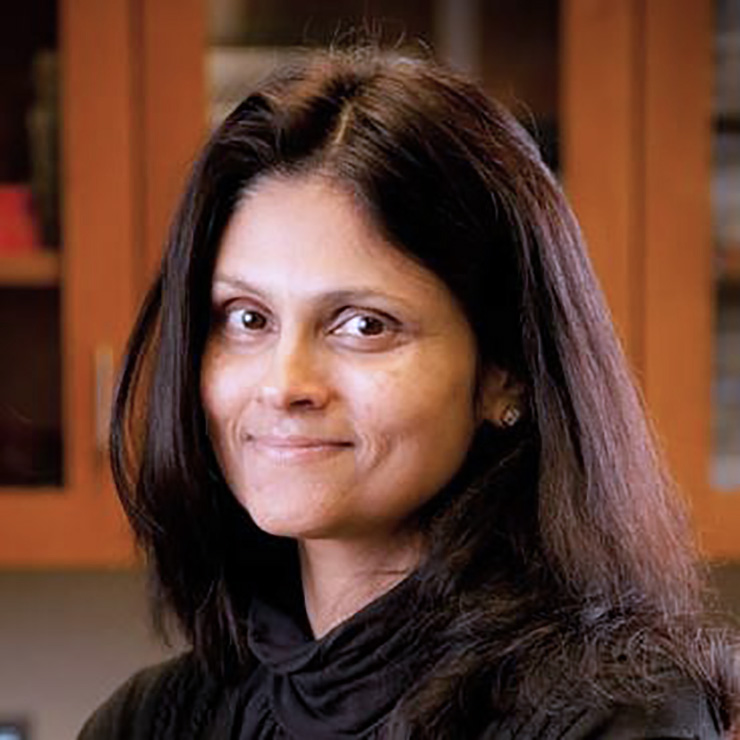Women’s History Month: Spotlighting Women in Roles Historically Held by Men
Duke staff and faculty in various fields share insights from their paths to excellence


‘Never retreat’
Dr. Erica Taylor
Chief of Orthopedic Surgery
Duke Raleigh Hospital
When Dr. Erica Taylor joined the School of Medicine as a faculty member and started practice at Duke Raleigh Hospital in 2013, she became the first Black female orthopedic surgeon in Duke’s history.
Today, 7.4 percent of practicing orthopedic surgeons in the country are female and approximately 0.6 percent of the estimated 30,000 orthopedic surgeons in the United States are Black women, according to the non-profit organization Black Women Orthopaedic Surgeons.
That means that Taylor, chief of Orthopedic Surgery at Duke Raleigh Hospital, is one of less than 200 Black women orthopedic surgeons in the nation.
“It’s startling numbers,” Taylor said.
Taylor, the daughter of an NFL player and coach, knew as young as 15 years old that she was interested in orthopedic medicine after seeing team physicians in action. But her path to follow her passion wasn’t easy.
Taylor trained and established herself in a field where few colleagues looked like her and being both Black and a woman made her an outlier among mostly white male colleagues. That meant Taylor was often overlooked and underestimated — and sometimes even encouraged to choose a specialty with more women such as pediatrics or obstetrics and gynecology.
But she never let that deter her — and she tapped into her strength and power and focused on what motivated her to enter the field in the first place.
“A great piece of advice I received was to ‘Never Retreat,’” Taylor said. “It’s something that I remind myself of often and impart to the learners and faculty that I mentor. At times we find ourselves in situations where we are not valued, included, or considered. Those are the scenarios and environments in which our voices matter the most. Resisting the urge to retreat, and instead leaning into the opportunity to represent and innovate, has brought about greater pathways to orthopaedics and healthcare leadership for all of us in rather magnificent ways."

Lifting Up Others
Rachel Satterfield
Vice President, Finance
Rachel Satterfield rarely thinks of herself as a woman in a position of leadership.
But across the country women in leadership positions of financial services are relatively rare. According to a July 2022 report from Deloitte, globally in 2021, women held 21 percent of board seats, 19 percent of C-suite roles and 5 percent of CEO positions within financial services institutions.
Satterfield, who started after being an auditor at Duke in 2001 and was appointed vice president for Finance in 2020, credits support from Duke colleagues and mentors for ensuring she never felt like her gender would prevent her from reaching her aspirations.
“I have been fortunate to work for many bosses, who have mentored me and given me the confidence to never sell myself short,” Satterfield said. “Always having people put that kind of trust in me has given me the confidence to believe that hard work and a positive attitude can take you anywhere.
Satterfield said that mentors such as predecessor Tim Walsh and current executive vice president Daniel Ennis have supported her as a friend and career professional. They have allowed herto realize that she can be a senior leader and still have a balanced life.
“I remember the the first time I admitted to a boss that I was having trouble juggling work and the challenges of having young children, and the immediate response was ‘family first.’ I was the one that assumed being a woman I couldn’t have both," Satterfield said.
Now, as she oversees 275 full-time employees who manage the university’s financial functions, including its debt and cash management programs as well as corporate payroll for the University and Health System’s 45,000+ employees, Satterfield feels a responsibility to set the same example for others.
“I think it’s important to walk the talk. Now that working from home is more the norm, I want my team members to take advantage of hybrid work arrangements. So I do work from home when I can myself, to let the team know I mean it. People notice if you’re a leader and you say something but then you never actually do it yourself,” Satterfield said. “If you do your job and you do it well, you will get opportunities.”

A Role for Her Expertise
Hyra Johnson
Superintendent of Landscape Services
Facilities Management
Hyra Johnson was 13 years old when her mother had saved enough money to purchase a home and move the family from a city apartment in Cincinnati, Ohio, to a house with a yard in the suburbs.
“She did it for us to have a better life and a better education,” said Johnson, who oversees the landscaping on Duke’s East, Central and Medical campuses. “She bought her house by herself, so I had a role model who did whatever she needed to do to provide for us.”
While her mother worked two jobs, Johnson, the oldest child in the house, understood that taking care of their property was her responsibility. Inspired by her mother’s strength, Johnson learned how to mow the grass and fertilize the yard through the kindness of a neighbor and her aunt’s gardening expertise.
According to Zippia, an online recruitment service that matches job seekers with employers, 9 percent of landscapers are women.
Along the path, working for landscaping companies in Cincinnati and Atlanta, Johnson was almost always the only woman working on a crew. Over 38 years, she has worked with only a handful of women, including her first employer, a woman who owned a commercial landscaping company.
Over the years, Johnson has felt like she had to outwork colleagues to earn respect and break up what she called the “boys club.”
“Once people see your talents they’re pretty accepting,” said Johnson, who joined Duke in 2021. “But it’s kind of one of those situations where they don’t expect you to do well. And then when you do, it’s pretty rewarding to see their reaction.”
Now on the other side of earning that respect, Johnson is grateful to be living out her dreams at Duke — and keeping campus beautiful.
“The best part about receiving this position was it’s the first time in my career that I actually applied for a job at my level of expertise,” she said. “I didn’t have to take the job below me and work myself up.”

More Than One Path
Shelly Clark Epps
Associate Chief Information Security Officer
Duke Health
By her own admission, Shelly Clark Epps fell into IT security by accident
She started her career at Duke working in clinical and research spaces in the School of Medicine. In 2013, when she was ready for something new, the then-Chief Information Security Officer, who’d seen her recent presentation on databases, invited her to interview for an IT security analyst role.
During the interview, Epps, who did not have a background in IT security, told her interviewers she didn’t think she was qualified for the role, unless they rewrote the job description to value her strengths in data management and communications. Her pitch was persuasive, and she got the job.
“I like to call myself a bit of an accidental security analyst,” said Epps, associate chief information security officer for Duke Health Technology Solutions. “It’s not really an accident so much as providence.”
According to the Cybsecurity Ventures 2022 report, women hold 25 percent of cybersecurity jobs globally.
Epps found her footing in the field unconventionally by learning IT security from the ground up, starting from the most foundational knowledge and building to more complex technical skills. That process taught her that while she could fill in the knowledge gaps, her outside perspective as an adept communicator and collaborator was invaluable.
She helped Duke realize that while many security teams focused on technical skills, Duke could lead through policies, authorizations and other priorities that put users and people first.
“I was very conscientious about how I could provide value while they were waiting for me to gain the knowledge,” Epps said.
Today, Epps is in charge of ensuring the Duke Health team is appropriately staffed and has the resources and strategy to take care of the network and its data. For others taking a path less traveled into their field, she urged them to lean on their strengths and work on areas for growth.
“Take stock of your business skills,” Epps said. “Figure out where you can lean in and have immediate value, even while you’re learning the stuff you can’t provide value in.”

Explore Possibilities
Nimmi Ramanujam
Robert W. Carr, Jr. Distinguished Professor of Biomedical Engineering
Dr. Nimmi Ramanujam, the Robert W. Carr, Jr. Distinguished Professor of Biomedical Engineering, founded the Center for Global Women’s Health Technologies at Duke in 2013 to empower students and researchers to create solutions that improve the lives of women and girls globally.
The center has provided an up-close view of the next generation of women entering engineering-related fields.
According to the Society of Women Engineering, women represent 14 percent of engineers today, up from 1 percent in 1960. Ramanujam said to make further progress in representation, it’s critical that the next generation of women entering any field are given the opportunity to chase their dreams in a safe environment.
That’s partially why she doesn’t give out tests in her classes — so that students can learn, experiment and discover what makes them most passionate without consequences.
Ramanujam said that 50 percent of the students who work in her lab this year are not engineering majors. They come from anthropology, social sciences and other fields, and she helps them understand that finding what you love doesn’t mean choosing a singular path or field.
“If you don’t know what the possibilities are, how do you know what you’re passionate about?” Ramanujam said. “You’ve got to give them a chance to do different things, and that’s where inherently failure comes in to play.”
Send story ideas, shout-outs and photographs through our story idea form or write working@duke.edu.